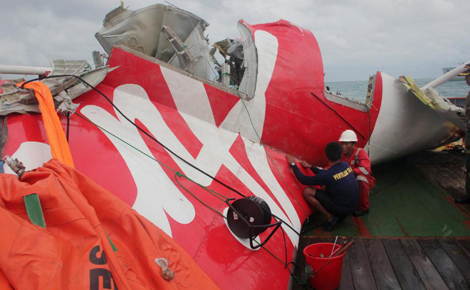×
The Standard e-Paper
Home To Bold Columnists

Warning alarms in AirAsia flight QZ8501 were "screaming" as the pilots desperately tried to stabilise the plane just before it plunged into the Java Sea last month, a crash investigator said Wednesday.